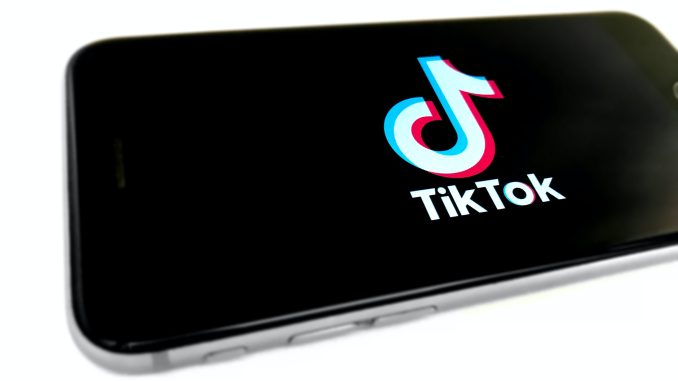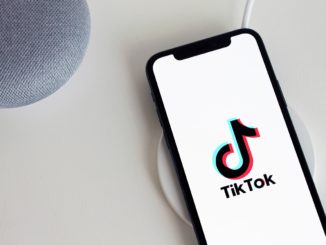
As an avid user of the internet, I have witnessed the meteoric rise of new social media platforms and their hunt for innovation and virality. Whether that be through their marketing of necessitated daily use, or their promise of delivering an experience the likes of us have never seen before. I’ll be honest, most of these apps I never try. I’m content with the daily hours I already waste and don’t find it intriguing at all to share real-time images of my life to my more sociable friends. Yet there is one app I have chosen to stay away from and it’s not for the usual reasons, in-fact it’s for something far more distressing. Ever heard of TikTok?
Since its inception, TikTok has been shrouded in data privacy allegations. Some have argued it’s because of the app’s Chinese origins, whilst others have provided analytical proof of its intrusive behaviour. It’s my belief that behind its vibrant and addictive videos lies a lurking danger that demands all our attention. In an increasing digital world, threats to our personal information have never been more important. It’s something we must safeguard and protect, and in the case of TikTok, something we must investigate with caution and vigilance.
ByteDance Data Breach
TikTok’s handling of user data has been nothing short of alarming. In a report published by ByteDance, TikTok’s parent company, an internal investigation confirmed that four employees had illegally accessed private user information. This was no accident, and the affected users were journalists who wrote negatively about TikTok and ByteDance: Forbes reporter Emily Baker-White, and Cristina Criddle of the Financial Times. Along with the private information that was violated, IP addresses that gave location information on the journalists were also accessed.
This is a serious breach of trust and shows the capabilities of social media companies when they really go after information. If the average user posted something critical of TikTok or China, how scary is it that within minutes they would know what country you’re in, the building you live in and the floor you just posted on? While it can be easy to say you represent no threat to ByteDance or China, the fact that our personal data can be so easily accessed must give us pause to its vulnerability to exploitation. It’s quite disheartening to realise that our personal lives and intimate details could be at the mercy of a foreign entity.
Server & App Permissions
Another cause of concern is the location of where TikTok’s data can be accessed. In the many press releases in which TikTok has addressed this issue, they have vehemently denied the claim that user data can be accessed in mainland China. Yet the internal investigation at ByteDance and a report from cybersecurity firm, Internet 2.0, have overruled this. The Chinese Government must also not be overlooked in this matter as their secretive approach to surveillance does not rule out the use of TikTok’s user data.
TikTok Australia has replied to my letter and admitted that Australian user data is also accessible in mainland China, putting it within reach of the Chinese government, despite their previous assurances it was safe because it was stored in the US and Singapore pic.twitter.com/ITY1HNEo6v
— James Paterson (@SenPaterson) July 12, 2022
To provide more technical context of TikTok’s app, the report from Internet 2.0 have confirmed the use of intrusive permissions that aid the company in extracting user data. Furthermore, these permissions are required for the app to run normally. The collected information ranges from location data, your whole contact list and all essential device information including access to the phones clipboard which may hold confidential passwords. TikTok have said this is typical of a modern-day app but why are some of these permissions needed on a social media platform that shares videos?
Since TikTok has hit the market, its growth in worldwide users has been astronomical. A company tasked with handling over a billion users should not lie about their operating procedures, let alone the logistics overseeing user data.

When interviewing some users at the University of Sydney, some shared the opinion of supporting TikTok in this matter.
“There is no clue that can show that it’s sending its records to the Chinese government. It’s moved its main institution to Singapore, and I think TikTok has shown this, but the people still do not accept this,” said Brian Xia, a TikTok content creator.
Users such as Brian believe a more bureaucratic story is at play here. It’s no secret a political dichotomy exists between the Western world and China. Historically, these nations have been at each other’s throats fighting a Cold War that some would say is still happening today. The success of TikTok is one of China’s greatest achievements, surpassing established social media platforms such as Snapchat and Twitter. It’s not hard to believe Western governments dislike the notion of a Chinese social media app dominating global active users.
“It’s the first Chinese social media app that has spread throughout the world, I think it can be seen as a progress of China,” said Xia.
To provide merit to his point, whilst TikTok have illegally accessed user information in the past, the app’s operating code has been deemed as industry standard by some cybersecurity experts citing political motive for the app’s ban in certain governments and countries. In the United States, a congressional hearing was held with TikTok’s CEO, Shou Zi Chew, testifying against the U.S. government’s concern on the possibility that the Chinese government was using TikTok to conduct influence operations that would affect public opinion. In over five hours of testimony, Chew continually denied the claim and ensured the company was doing everything it could to provide its international users with top security.
Despite this, the implications for our privacy cannot be understated. TikTok’s Chinese ownership, coupled with its invasive data collection practices has ignited real fears of potential breaches and unauthorised access to our personal information. As users, we should question our reliance on platforms like TikTok and consider the potential trade-offs between entertainment and our fundamental right to privacy and safety.
It’s time to hold TikTok accountable for its actions and demand a more responsible digital landscape that respects our privacy and safeguards our well-being. It’s time to prioritise our own security and look past the allure of short-lived viral fame. By doing so, we can aim for a safer and more responsible digital future.





Be the first to comment